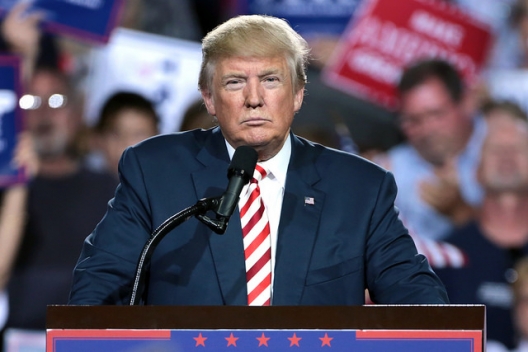 [Donald] Trump argued other NATO countries had to “fulfill their obligations” to receive the United States’ military aid. Asked to clarify what would happen to countries who hadn’t paid, he demurred.
[Donald] Trump argued other NATO countries had to “fulfill their obligations” to receive the United States’ military aid. Asked to clarify what would happen to countries who hadn’t paid, he demurred.
In May 2016, Trump also told the Wall Street Journal that when other NATO nations “don’t pay up, they’ve backed out of their obligations, then we no longer have an obligation to defend them.”
Trump said he did not want to get out of NATO, but wanted “the countries of NATO to pay us.”
There’s a problem with the way Trump has talked about NATO country payments.
“No one in NATO actually ‘pays us’ to defend them, as Trump repeatedly claims, nor is there any obligation to do so,” said Ivo H. Daalder, president of the Chicago Council on Global Affairs who previously served as ambassador to NATO under President Barack Obama.
“Our commitment to come to our allies’ defense — and theirs to ours — isn’t in return for any payment,” Daalder said. “It is an unconditional treaty obligation every ally entered into freely when they signed the North Atlantic Treaty.”
NATO allies pay into military and civilian budgets on the basis of agreed cost shares, said Jeff Rathke, senior fellow and deputy director of the Europe Program at Center for Strategic and International Studies. And to be clear, funds are paid to NATO, not to the United States….
Jorge Benitez, director of NATOSource at the Atlantic Council, says if Trump were elected president and decided not to help defend a NATO ally under attack, “it would be the end of NATO.”
“This would be a very damaging blow to U.S. national security and would also hurt our alliances in other parts of the world,” Benitez said.
Image: Donald Trump in Prescott Valley, Arizona, Oct. 4, 2016 (photo: Gage Skidmore)
